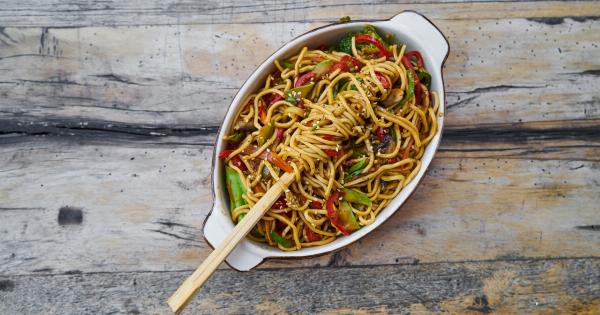Magnesium is an essential mineral that plays a crucial role in numerous bodily functions. From maintaining healthy bones and muscles to supporting a healthy heart rhythm, magnesium is involved in various physiological processes.
However, many people are deficient in this important mineral, which can lead to various health issues. Incorporating magnesium-loaded foods into your diet can help ensure you meet your daily magnesium requirements. In this article, we will explore ten delicious and nutritious foods that are rich in magnesium.
1. Spinach
Spinach is a versatile leafy green vegetable that is packed with essential nutrients, including magnesium.
One cup of cooked spinach contains approximately 157 milligrams of magnesium, which represents nearly 40% of the recommended daily intake for adults. Spinach is not only rich in magnesium but also provides other vital nutrients like iron, vitamin A, and vitamin K.
2. Almonds
Almonds are not only a tasty snack but also a great source of magnesium. Just a handful of almonds can provide around 80 milligrams of magnesium, making it an excellent addition to your daily diet.
Almonds are also high in healthy fats, fiber, and protein, making them a wholesome and nutritious choice.
3. Avocado
Avocados are known for their healthy fats and delicious taste. Besides their numerous other benefits, avocados are also rich in magnesium.
One medium-sized avocado contains approximately 58 milligrams of magnesium, making it a fantastic choice for meeting your daily magnesium needs.
4. Quinoa
Quinoa is a trendy and nutritious grain that is also a great source of magnesium. In addition to being gluten-free, quinoa contains around 118 milligrams of magnesium per cooked cup.
This ancient grain is also high in fiber, protein, and other essential minerals, making it a superfood for overall health.
5. Dark Chocolate
Who said healthy foods can’t be delicious? Dark chocolate is not only a treat for your taste buds but also a good source of magnesium.
Just one ounce of dark chocolate, with at least 70% cocoa content, provides approximately 64 milligrams of magnesium. Remember to choose high-quality dark chocolate with minimal added sugars for optimal health benefits.
6. Black Beans
Black beans are a versatile legume that can be easily incorporated into various dishes for a magnesium boost. One cup of cooked black beans contains around 120 milligrams of magnesium, along with other essential nutrients like protein and fiber.
Adding black beans to your diet can enhance your magnesium intake while promoting healthy digestion.
7. Pumpkin Seeds
Pumpkin seeds are not only a tasty snack but also a fantastic source of magnesium. Just one ounce of pumpkin seeds provides approximately 156 milligrams of magnesium, which is about 37% of the recommended daily intake.
These nutrient-dense seeds are also packed with other minerals, healthy fats, and antioxidants.
8. Salmon
Salmon is a popular fatty fish that is rich in omega-3 fatty acids and a good source of magnesium. A 3-ounce serving of cooked salmon offers around 26 milligrams of magnesium, along with plenty of protein and healthy fats.
Including salmon in your diet can provide various health benefits, including supporting brain health and reducing inflammation.
9. Bananas
Bananas are known for their potassium content, but they also contain a decent amount of magnesium. With approximately 32 milligrams of magnesium in a medium-sized banana, this fruit can contribute to your daily magnesium needs.
Bananas are also a great source of vitamins and fiber, making them a nutritious choice for a quick snack or addition to smoothies.
10. Greek Yogurt
Greek yogurt is a creamy and nutritious dairy product that is an excellent source of magnesium. One cup of plain Greek yogurt contains approximately 46 milligrams of magnesium, along with protein, calcium, and probiotics.
Greek yogurt makes for a satisfying and healthy addition to breakfast or a quick snack option.
Incorporating these magnesium-loaded foods into your diet can help ensure you meet your daily magnesium requirements.
Remember to consume a balanced diet and consult with a healthcare professional if you suspect you have a magnesium deficiency or have any specific dietary concerns.





























